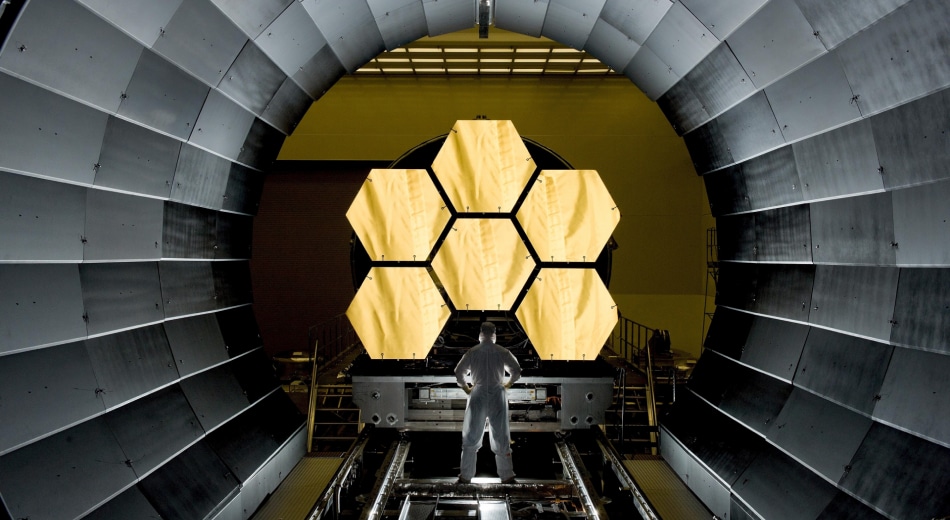How Facilities Management is Evolving with New Technology
September 10, 2022
Facilities management is a rapidly changing field thanks to technological developments over the past couple decades. The evolution has surpassed they physical aspects of the job such as janitorial and HVAC systems, to transform space requirements, building infrastructure and even dictate where a company should be located. These changes have resulted in a vastly different job description for Facility Managers, completely overhauling their day-to-day duties in some cases.
New technology and developments to existing tech have created significant opportunities for financial savings and business benefits for companies who require facilities management. They have evolved to change how work is processed and delivered for all property types with newer and smarter work request systems, Smart Building and Cloud technology, and other technology-based solutions. Facility Managers no longer need to wade through inaccurate or disorganized paper records, and they can manage their building’s infrastructure from wireless devices or even their own smartphone or tablet. This enables them to work smarter and more efficiently, seamlessly accessing key building information and dispatching a repair request with a couple of clicks.


Areas New Technology is Impacting Facilities Management
Cloud Technology
The widespread adoption of cloud technology throughout most industries has also evolved within the role of facilities management. Cloud technology has especially impacted the potential for greater efficiency within the management of building infrastructure and systems. For example, Facility Managers can use the cloud to store their records and as-builts, instead of having to wade through messy, disorganized, inaccurate or incomplete paper records. Cloud technology is also used to make these records accessible from anywhere – in real-time – enabling on-the-ground facility management personnel to focus on higher priorities such as preventive maintenance and reducing response times for problems and service requests.
Smart Buildings
By integrating cloud technology and building infrastructure records with smart building platforms like CriticalAsset, Facility Managers not only have access to key records that facilitate the execution of their duties; they are armed with more information than ever before. Smart building technology offers a much more detailed footprint of the building’s infrastructure, alerting Facility Managers to potential issues before they happen so that they can repair and troubleshoot solutions. But more than that, technologically-enhanced building systems can go so far as to track workforce trends, alert Facility Managers when equipment is due for maintenance, and even detect equipment failures before they happen. With smart building technology, Facility Managers can be far more efficient and informed, enabling them to do their jobs more effectively as well as being more proactive with building maintenance instead of only reacting to problems when they develop.
Efficiencies of Scale
More than ever before, efficiencies of scale is an opportunity for facilities management. At the heart of the technology that’s pushing this evolution are the Internet of Things and machine learning. IoT, for example, optimizes systems that have previously been siloed to integrate them for more effectiveness. These systems include fire safety, power, automation, security systems and others. Meanwhile, machine learning enables efficiencies of scale by utilizing data-driven intelligence and AI to multiply the value of building infrastructure data and make facilities management more effective. Instead of being merely service providers, facility management teams that use machine learning and the IoT to become value-added partners with sustainable and cost-saving solutions. In this heavy maintenance, high cost industry, predictive asset management is a cutting-edge evolution that technology has provided for facility management.
Energy Efficiency
Sustainable energy production and efficiency in energy consumption is an initiative that nearly every industry is pursuing, so it’s understandable that it would be a priority for an industry so affected by energy usage. Technology platforms are already in use that monitor energy consumption, make automatic adjustments to temperature and lighting and other systems, and then report on that data with analysis of usage and cost. Technology that improves energy efficiency creates significant opportunity for savings, since buildings with no benchmarks for managing energy usage have been found to cost as much as 30 percent more than buildings with energy efficiency strategies in place. Additionally, as a direct result of inefficiencies, buildings cost 15% more per square foot in maintenance costs each year. Implementing a management solution driven by the IoT can make energy usage more predictive and efficient.
Cost Benefit
By creating more efficiency with systems monitoring and even operations and facilitating automation and data management to reduce the workload for Facility Managers, technology has created some significant cost savings in facility management. Facility Managers can use technology to implement processes and business solutions that are based on stronger, more reliable data for cost-avoidance or at least cost-savings. In addition, technology has enabled Facility Managers to work differently and use that data for more measurable of a return on investment by extending the life of building assets. In short, the cost benefit of technology in facility management is resulting in improved portfolio performance and reporting on that performance.
How Technology has Changed the Role of the Facility Manager
The evolutions in facility management that have been prompted by technological developments have not just changed the industry; they have radically transformed the role of the Facility Manager. Understandably, Facility Managers must be more tech-savvy than ever before, since technology has made this role far more about using data and analytics to drive and enhance productivity instead of grounds maintenance and janitorial work.
Data Analysis vs. Tactical Services
Where traditional facility management was focused more on delivering tactical services such as landscaping, maintaining building systems, the new role of Facility Manager is to use technology-driven data to make building performance, systems operations, and other building functions more effective and efficient. Instead of focusing their efforts on making systems adjustments and hunting through paper records, today’s Facility Managers use technology to increase building energy efficiency, optimize workforce productivity, and create meaningful programs for sustainability.
Strategic Business Opportunities
Equipped with more reliable, accurate and real-time data that’s generated and presented by technology, Facility Managers of today are positioned to be incredibly valuable as business partners and agents for positive change in facilities management. Technology has supplied Facility Managers with vast amounts of data about the real estate, equipment assets, and customer/workforce usage, and they can use this data to inform strategic business opportunities. Facility Managers are better positioned to offer business growth advice that is informed by reliable analysis of trends, costs, procedures, and more.
Interdepartmental Collaboration
Over recent years, spurred on by the substantial technological evolutions that facility management has undergone, the role of Facility Manager has become far more collaborative. It used to be mostly isolated, but now Facility Managers are often working with other departments and other areas of the business to achieve more overarching objectives. Specifically, Facility Managers are working with their IT and HR departments to ensure the maximum value from their work. IT departments can help improve the efficacy of the tech-related solutions Facility Managers are implementing, ensuring they function most smoothly and seamlessly. Where IT helps facilitate the smooth operation of technology solutions within facility management, the work Facility Managers do has an important effect on the building’s workforce. Therefore, it’s important for Facility Managers to partner with HR to implement new technologies for employee productivity and location functionality.

CriticalAsset eliminates the hassles of facilities asset management, allowing you to effortlessly manage and track all your infrastructure assets and devices in one place, saving you time and money. Sign up for a free trial.



